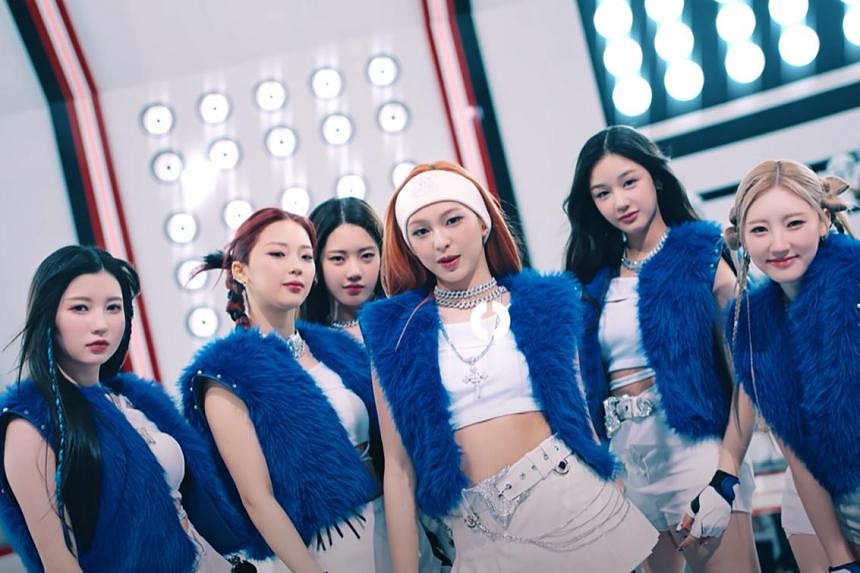SINGAPORE – When Korean record label YG Entertainment registered the trademarks BabyMonster and BabyMonsters for its new K-pop girl group BabyMonster in Singapore, it was met with resistance from an unlikely opponent.
American energy drink manufacturer Monster Energy Company (MEC) opposed the registrations in a trademark lawsuit filed in Singapore court, but intellectual property adjudicator Ravindran Muthucumarasamy on Dec 29, 2023, rejected its objections, having found the trademarks to be dissimilar after examining them conceptually, visually and aurally.
In court documents, he noted that the energy drink maker had filed 52 notices of opposition with the Registrar of Trade Marks between 2012 and Dec 29, 2023.
It succeeded in 32 of them, as either the trademark applicant withdrew its applications or defaulted in filing its counter-statements or evidence. It failed to get trademarks withdrawn in nine cases, withdrew from seven and has another four cases still pending.
MEC is a global leader in the energy drinks industry and owns at least 33 registered trademarks in Singapore, with many of them including the word “monster”. It has been selling its energy drinks in Singapore since October 2012.
But the attempt by MEC to protect its trademark is not new. It had initiated more than 1,000 trademark cases in the United States by 2019, and even attempted to object trademark registrations for Pokemon games in Japan, since the iconic video game series’ name is derived from the words “pocket” and “monster”.
Because it seems so easy for the registration of trademarks to be opposed, The Straits Times contacted the Intellectual Property Office of Singapore (Ipos) and lawyers specialising in intellectual property to find out more about the process.
Q: What is a trademark opposition?
A: A trademark opposition is when an individual or firm challenges the right of a trademark owner to have their trademark registered.
That means the trademark should not be registered at all, said Mr Lau Kok Keng, the head of the intellectual property, as well as sports and gaming practices, at Rajah and Tann. It differs from trademark infringement, he said, which is “where you use a registered trademark without the permission of the owner”.
Q: Why would a trademark opposition be filed?
A: Businesses use trademark opposition as a way to prevent others from adopting similar marks for similar goods or services, said Ms Lee In Hae, a senior associate in the technology and intellectual property team at Withers KhattarWong.
In doing so, it protects their own trademarks from being diluted, said Mr Lau, who added that it pre-emptively prevents potential infringement at times.
But the process can be abused by “large companies with deep pockets who file endless oppositions against smaller applicants who may not have the resources to hire legal representation”.
He said some may file oppositions to stall their competitors’ business plans involving the use of the trademarks.
Q: Can anyone oppose the registration of a trademark?
A: Any person can oppose the registration of a trademark, although there are certain prerequisites that need to be fulfilled.
For starters, there has to be a basis for the opposition, said an Ipos spokesman. The possible grounds to oppose such registrations are based on the Trade Marks Act and Rules, and are categorised into absolute and relative grounds.
An example of the former is when a trademark lacks any distinctive character, while the latter could be if the trademark resembles an earlier trademark and is registered for goods or services that are similar to those the earlier trademark is protected for, which may likely lead to confusion.
Q: Are there costs to opposing trademark registrations?
A: Yes there are. Initiating a case will cost $420 for each class of goods and services that the trademark applies to.
There are also fees for a hearing and decision, with it costing $1,000 for the first class, and $800 for each subsequent class, said the Ipos spokesman.
There may also be legal costs if the parties involved engage lawyers, with Mr Lau estimating the whole process to cost around $20,000 to $30,000, although that figure may be higher, depending on the complexity of the case.
Q: What happens if a trademark opposition is successful?
A: Withers KhattarWong’s Ms Lee said a trademark may be prevented from registration if the case is successful.
But damages or compensation are not a typical outcome of such proceedings. In some cases, though, costs may be awarded to the winning party.


